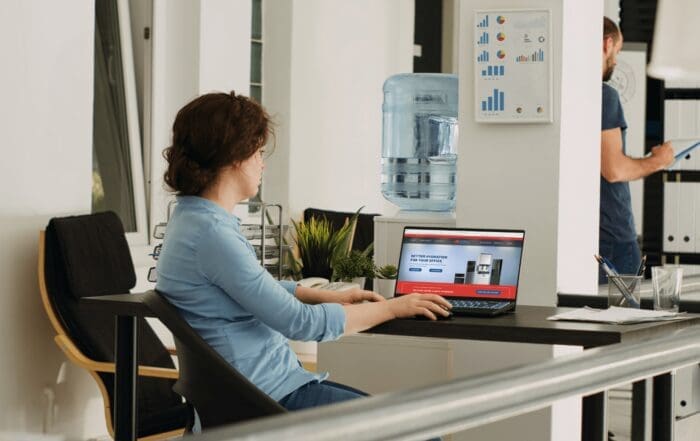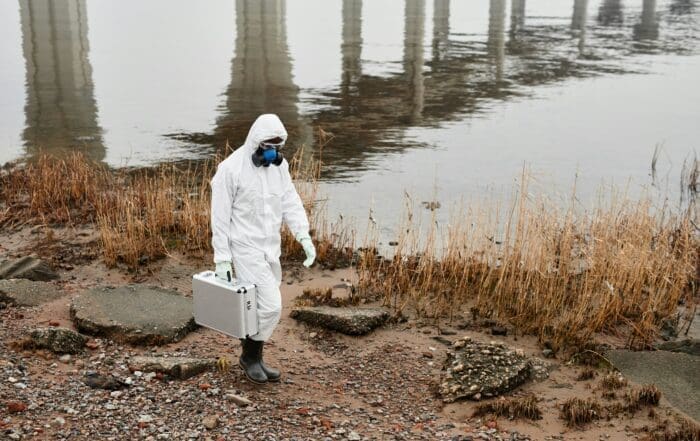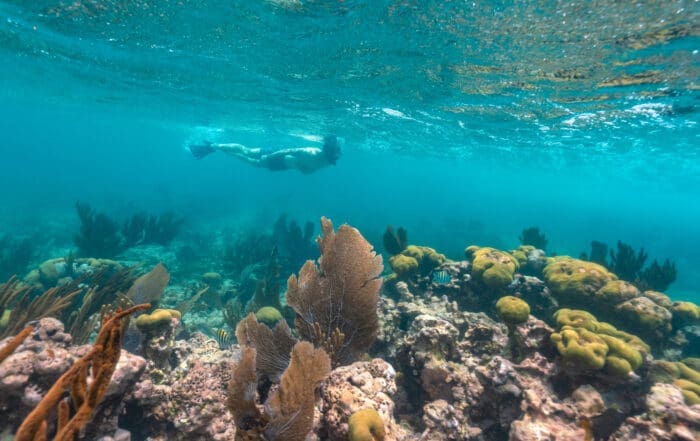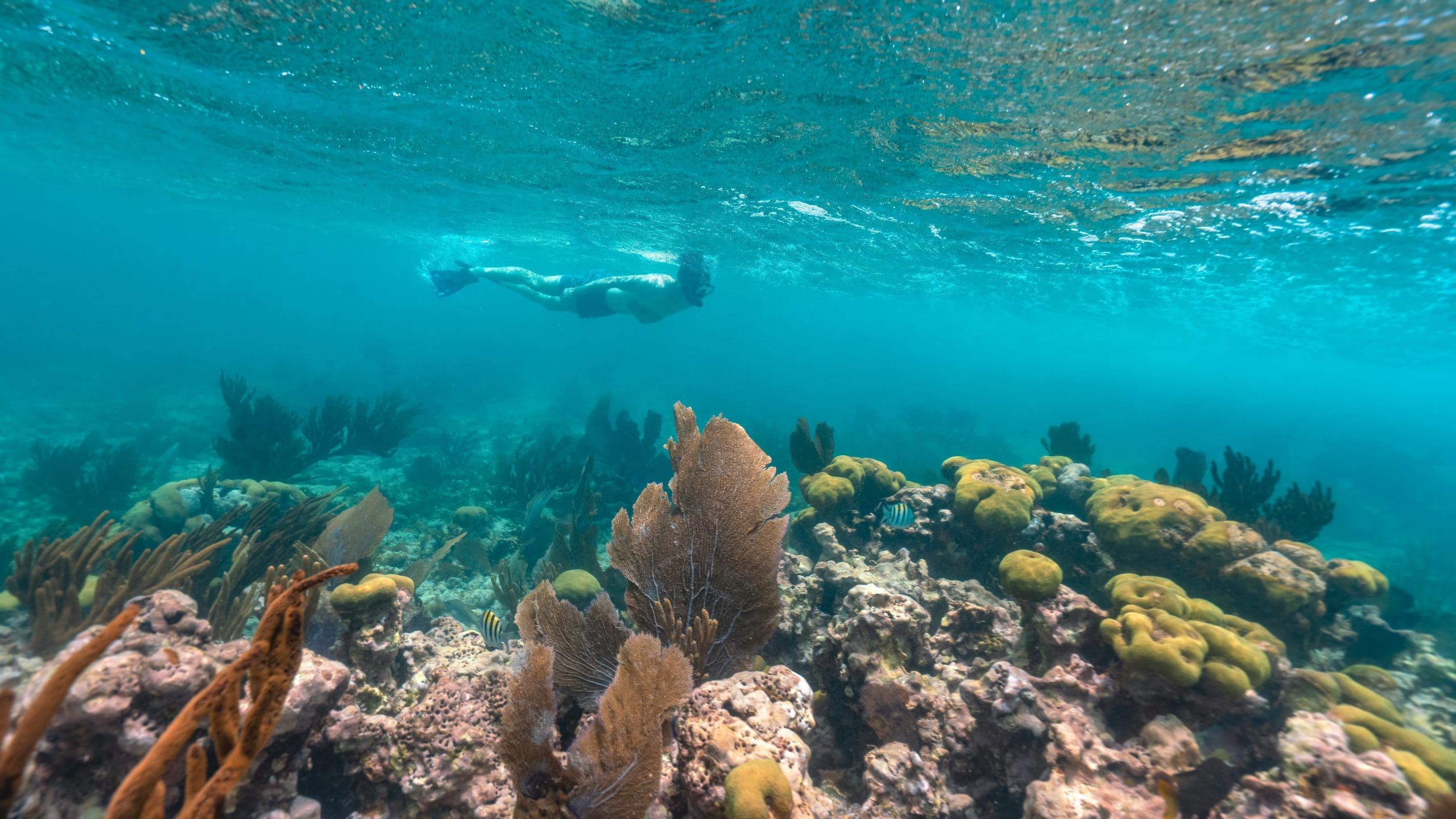
How Plastic Pollution Affects Coral Reefs in Texas
Plastic pollution is a growing environmental concern that impacts ecosystems worldwide, including the beautiful and delicate coral reefs off the coast of Texas. For eco-conscious businesses in Houston and Grand Prairie, understanding the effects of plastic pollution on these reefs is crucial. It allows you to make informed decisions that not only benefit your bottom line but also contribute to the preservation of our planet’s natural beauty. So, come along as we explore how plastic pollution affects coral reefs along the coast of Texas and highlight how adopting bottleless water and ice coolers from Artesian Bottleless Water can significantly reduce plastic waste, showcasing your commitment to sustainability.
Welcome to National Oceans Month
June is National Oceans Month, a time to celebrate and raise awareness about the vast and diverse ecosystems that cover over 70% of our planet. The oceans are home to countless species of plants and animals, provide vital resources for human survival, and play a crucial role in regulating the Earth’s climate.
But as we celebrate the beauty and importance of our oceans, it’s also important to address one of their biggest threats: plastic pollution. Every year, millions of tons of plastic waste end up in the oceans, harming marine life and delicate coral reefs.
The state of Texas is home to some of the most beautiful coral reefs in North America, including those found in Flower Garden Banks National Marine Sanctuary. These reefs provide habitat for a diverse array of marine species and contribute significantly to Texas’ economy through activities such as recreational fishing and tourism. They also prevent shorelines from erosion, further embedding them as an important coastal staple.
However, these vibrant ecosystems are facing a serious threat from plastic pollution.
The Impact of Plastic Pollution on Coral Reefs
Physical Damage to Coral Structures
Plastic waste, particularly large items like plastic bags, fishing gear, and bottles, can physically damage coral reefs. When these items get caught on the reef, they can break or abrade the delicate coral structures. This physical damage can lead to reduced growth rates and increased disease susceptibility, ultimately weakening the reef ecosystem. Unfortunately, most of the plastic affecting reefs is from fishing and marine industries. Still, that doesn’t mean your plastic jugs and bottles aren’t having an impact. A majority of plastic waste is not recycled or recyclable, so it has to go somewhere. And that somewhere is often the ocean.
Chemical Pollution
Plastics are made from a variety of chemicals, some of which can leach into the water and harm marine life. As plastic debris breaks down into microplastics, these tiny particles can absorb and transport pollutants. When marine organisms, including corals, ingest microplastics, they can suffer from toxic effects, leading to impaired growth, reproduction, and even death.
Entanglement and Ingestion
Marine animals often mistake plastic debris for food, leading to ingestion and entanglement. Turtles, fish, and seabirds can ingest plastic, causing internal injuries, blockages, and starvation. Corals, too, can ingest microplastics, which can lead to physical blockage and a decrease in their ability to feed and respire properly. Research suggests that the coral feels sated after feeding on plastic, meaning they feel full and no longer seek out nutrients from actual food sources. The plastic stays inside them, and they eventually die.
Disruption of Ecosystems
Plastic pollution disrupts the delicate balance of marine ecosystems. When coral reefs are weakened by plastic debris, the entire ecosystem suffers. Fish populations decline, which affects the larger predators that rely on them. This disruption cascades through the food web, ultimately impacting human communities that depend on these ecosystems for their livelihoods.
The Situation in Texas
Texas is not immune to the global plastic pollution crisis. The Gulf of Mexico is a significant repository for plastic waste. Currents and winds bring plastic debris from distant places, making local efforts to combat pollution even more critical. Coastal cities like Galveston must also take proactive measures to address this issue, both locally and globally.
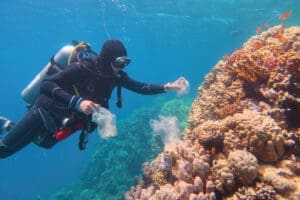
How Eco-Conscious Businesses Can Make a Difference
For businesses in Texas, adopting sustainable practices can make a substantial impact. Reducing plastic usage is a key step in protecting coral reefs and the broader environment. One practical and effective solution is to switch to bottleless water and ice coolers, such as those offered by Artesian.
The Benefits of Bottleless Water and Ice Coolers
Artesian provides innovative solutions that help businesses eliminate the need for plastic bottles. These systems connect directly to your water supply, providing an endless supply of purified water without the environmental impact of plastic waste.
Here’s how they can benefit your business and the environment:
Reduction in Plastic Waste: Switching to bottleless water coolers significantly reduces the number of plastic bottles that end up in landfills and oceans. This helps protect coral reefs from the physical and chemical damage caused by plastic pollution.
Cost Savings: Switching to bottleless means you don’t have to order, store, or maintain your own bottled water cooler. You also eliminate the recurring costs of purchasing bottled water and reduce waste management expenses.
Improved Sustainability Image: Consumers are increasingly eco-conscious and prefer doing business with companies that prioritize sustainability. By adopting bottleless water coolers, you demonstrate your commitment to environmental responsibility, which can enhance your brand reputation and attract like-minded customers.
Health and Convenience:
Our coolers provide clean, filtered water on demand. This ensures that your employees have access to high-quality drinking water without the hassle of dealing with plastic bottles. It also reduces the logistical challenges associated with storing and disposing of plastic waste.
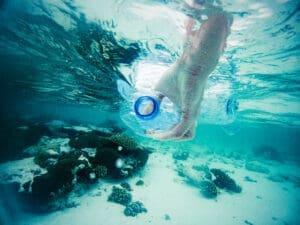
Your Role in Protecting Coral Reefs
Plastic pollution is a significant threat to coral reefs in Texas, but eco-conscious businesses have the power to make a difference. By understanding the impact of plastic on these fragile ecosystems and taking steps to reduce plastic usage, you contribute to the preservation of our natural heritage. Adopting bottleless water and ice coolers from Artesian Bottleless Water is a practical, effective way to reduce plastic waste and showcase your commitment to sustainability.
Together, we can protect the vibrant coral reefs off the coast of Texas, ensuring that they continue to thrive for generations to come. Your actions today can lead to a cleaner, healthier environment tomorrow.
Let’s make a positive impact and show that Texas businesses care about our planet’s future. Contact us today!

